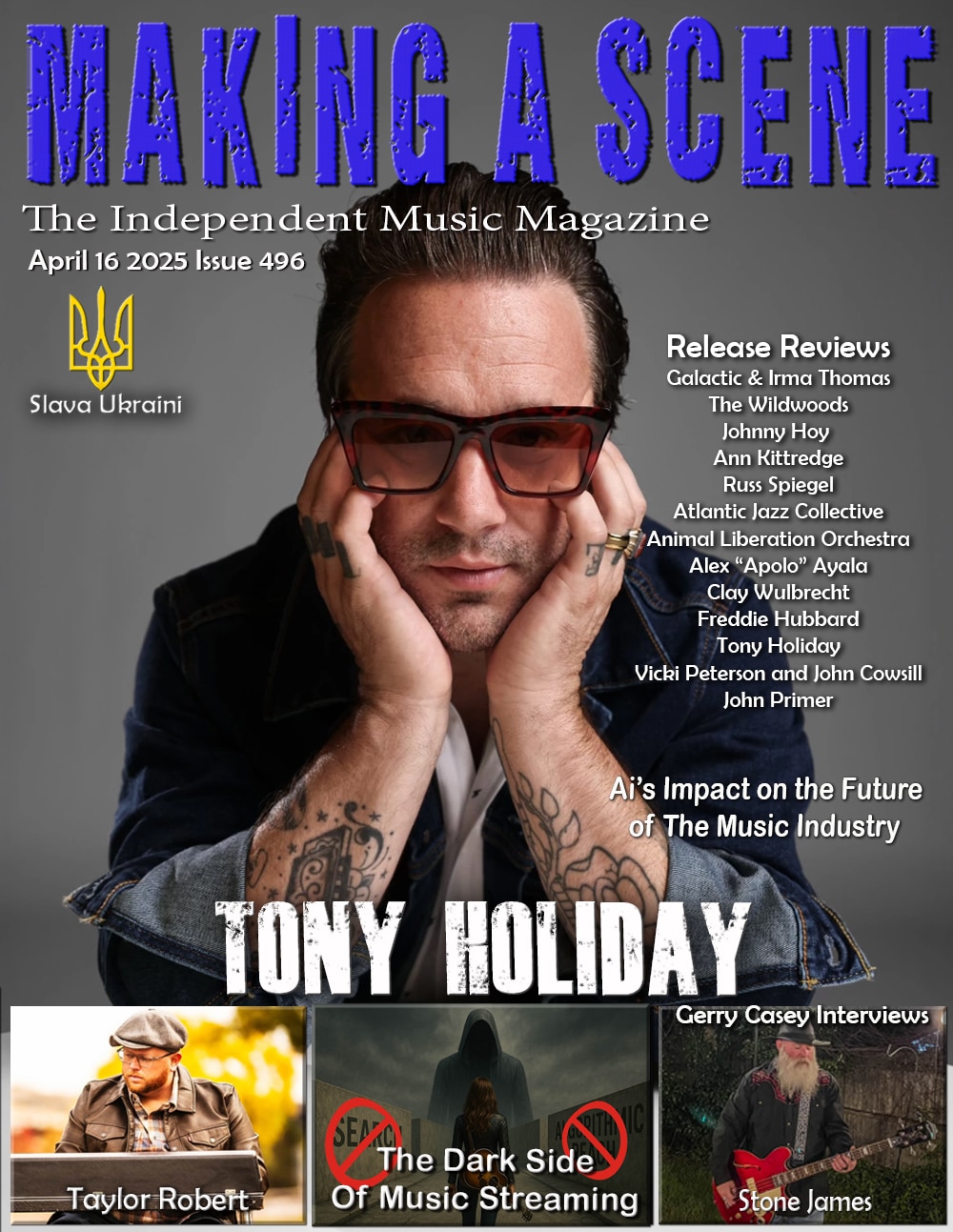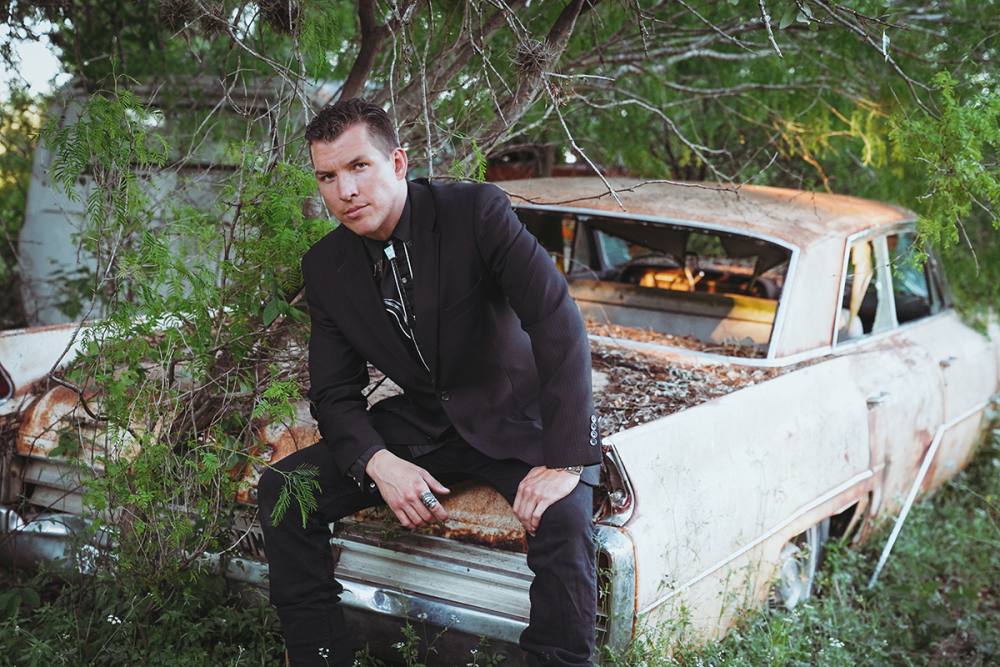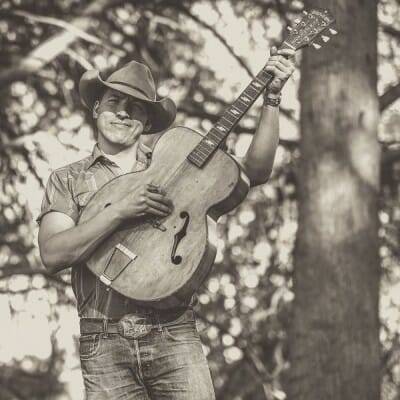Dallas Burrow is Making A Scene
HOMEPAGE
Making a Scene Presents an Interview with Dallas Burrow!
By the time Dallas Burrow headed to Nashville in 2018 to record his career-defining Southern Wind, the Texas-born songwriter had already wandered across much of the free world, chasing his unique muse from New Braunfels to New Orleans, from Northern California to western Spain, from the Bible Belt to Budapest. He’d been a lifelong explorer — equal parts guitar-playing gypsy and Jack Kerouac-worthy vagabond, taking note of each town’s distinctive soundtrack as he bounced from place to place. Those travels shaped his own music: an Americana sound influenced by folk, classic country, and rock & roll, glued together by Texas twang and autobiographical storytelling.
Somewhere along the way, Burrow grew tired of the crazy pace. He’d been on the move for years, dodging law officials on occasion (as detailed in “Rodeo,” one of Southern Wind’s many highlights) and playing a long string of shows with the help of intoxicants. It was time to sober up, straighten out, and approach his life — as well as his songwriting — with a clear-eyed perspective.
Southern Wind finds him bidding goodbye to those vices and taking one last look at the whirlwind of his young adulthood, a time filled with barely-believable highs — including an inspirational jam session with Bob Dylan, a shared meal of buffalo stew with Dr. John, and a period of time spent traveling with a Native American shaman — and crushing lows. It’s a self-reckoning of sorts. “There are songs on the record that recount those wandering, partying days,” says Burrow, who recorded the bulk of the album in two inspired days, “and there are songs that tell the story of me becoming grounded and settling down. In a way, it’s a chronological story about the various parts of my life. I’m saying goodbye to the young party animal I used to be, and settling into a newfound, more mature version of whoever I am.”
And who is Dallas Burrow, exactly? The songs help tell the story. In the acoustic guitar ballad “Strawberry Jam,” he’s a pre-teen working the fields alongside his salt-of-the-earth grandparents. In “Rodeo,” he’s a young hellion on the run, running off to New Mexico to avoid some legal trouble back home. “I Come and I Go” and “Guitar Man” — both featuring lyrics written by his father, a musician, poet, and drifting hippie who hung out with legends like Townes Van Zandt and Guy Clark in the 1970s — shine a light on the influence of his Dad, while the titular “Southern Wind” finds Burrow living in Texas and starting a family on his own, having returned to the same state he left as a young thrill-seeker. Southern Wind takes its audience on a full-circle journey, dishing up a compelling soundtrack along the way.
Burrow recorded the album with producer Eric McConnell, known for his award-winning work with Loretta Lynn, Todd Snider, and others. Joining them in the studio were a handful of all-star musicians, including guitar virtuoso Kenny Vaughan, former Johnny Cash bassist Dave Roe, Average White Band drummer Pete Abbott, Edwin McCain collaborator Larry Chaney, harmony singer Sierra Ferrell (“she’s like a gypsy Dolly Parton,” Burrow says), and guitarist Frank Rische. Chris Scruggs — grandson of bluegrass legend Earl Scruggs, as well as a member of Marty Stuart’s Fabulous Superlatives — played lap steel guitar, while world-renowned fiddler Billy Contreras also contributed. Together, the group treated the songs minimally, adding small touches — a swooning fiddle here, a guitar riff there — without cluttering the melodies and messages that serve as Southern Wind’s core. They worked quickly, too, recording an average of five songs a day and focusing on live, organic performances. “Dave Roe had a mantra that he’d learned from Johnny Cash, which was, ‘We better record these songs before we learn them,'” remembers Burrow, who also tapped Chaney — the producer of Burrow’s five records preceding Southern Wind — to record the album’s title track before the full tracking session.
On an album filled with Nashville star power, it’s Dallas Burrow who shines the brightest. He sings each track in a voice that’s been convincingly roughened by the life he’s left behind, and he writes about familiar topics — the clean slate of childhood, the angst of adolescence, the rambling rush of a life lived on the run, and the eventual return to a quieter, more rewarding way of life — with a frank simplicity that’s both new and nuanced. After nearly losing his way, Dallas Burrow has come home, blown back to his Texas roots by the Southern Wind.
Discover more from Making A Scene!
Subscribe to get the latest posts sent to your email.























































